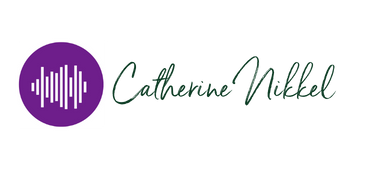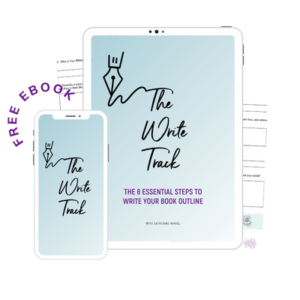Writing workshops offer a collaborative environment for aspiring and professional writers to refine their craft, share personal stories, and receive valuable feedback from their peers and workshop leaders. The scope is broad, from creative writing workshops focusing on genres like science fiction, short story, fiction, poetry, or creative nonfiction to those centered around business or academic writing. Let’s delve into what these workshops entail and how they can be instrumental in honing your writing skills and advancing your writing career.
Types of Writing Workshops
Writing workshops span a wide range of genres and topics. Here are a few of the most common ones:
Creative Writing Workshops
Creative writing workshops usually focus on developing skills to write fiction, poetry, and creative nonfiction. They provide a space for writers to delve into the nuances of character development, novel plot structure, and narrative voice. These workshops are especially beneficial for emerging writers exploring different genres and honing their writing styles.
Science Fiction and Speculative Fiction Workshops
These workshops are aimed at writers interested in science fiction, fantasy, and speculative fiction. Participants explore world-building elements, weaving science or theoretical aspects into the narrative and creating compelling characters and plots within these unique and often complex settings.
Short Fiction Workshops
Short story and fiction workshops revolve around crafting short stories, flash fiction, or novellas. Here, you will learn various methods to tell compelling and complete stories within a limited word count. These workshops often involve reading and critiquing fellow writers’ work, which provides diverse perspectives and insights.
Nonfiction Writing Workshops
Nonfiction workshops cater to writers working on essays, memoirs, journalistic pieces, biographies, or any form or subject of factual writing. Participants learn how to shape real-life events and facts into a captivating written narrative that resonates with readers.
Why Join a Writing Workshop?
Participating in a writing workshop can be a transformative experience for many writers. Here are a few reasons why:
Learning from Others
Workshops bring together writers from diverse backgrounds and levels of expertise. This diversity fosters a rich learning environment where participants can learn from each other’s experiences, writing styles, methods, and feedback.
Gaining Valuable Feedback
One of the critical elements of a writing workshop is the critique or feedback session. Writers present their work to the group, and constructive feedback is provided. This process allows writers to view their work through the lens of different readers and understand how well their writing communicates their intended message.
Accountability and Progress
Workshops, especially ones running over several weeks, provide a structured environment that encourages regular writing. The expectation to present work and progress keeps writers accountable, often leading to higher productivity.
Writing workshops can be a significant step toward improving your craft and understanding the literary world better. Whether it’s learning about query letters, self-publishing, or getting in touch with literary agents, workshops can open many doors. The next generation of successful writers will likely emerge from such nurturing environments.
Choosing the Right Writing Workshop
Before enrolling in a writing class, conference, or workshop, it’s essential to consider several factors to ensure they align with your needs and objectives.
Personal Goals
What do you hope to achieve from the workshop? Are you looking to start a novel, improve your poetry, or hone your writing skills? Identifying your goals can help you select a workshop that aligns with your objectives.
Type of Workshop
Workshops come in various forms, including in-person classes, online courses, or even writing retreats. While in-person workshops provide a hands-on experience and direct interaction, online workshops offer flexibility, which is excellent for people with tight schedules. Choose the one that fits your learning style and schedule.
The Instructor
The instructor plays a significant role in a writing workshop. Research their background, writing achievements, and teaching style. It would help if you were comfortable with the instructor and their method of teaching writing, providing critique.
Fellow Participants
The value of a writing workshop is not only for the instructor but also for fellow students and participants. Their feedback can be just as enriching. Look for workshops that attract diverse writers to gain various perspectives.
Duration and Pace
Workshops can run anywhere from a single-day intensive course to a week-long class or even a 6-week course. Some require a considerable time commitment for the classes, preparation, and homework. Ensure you’re willing to commit to the entire duration of the course.
The Role of the Workshop Leader
A good teacher or workshop leader is pivotal to the success of any writing workshop. The workshop leader is responsible for creating a conducive workshop environment, ensuring that constructive critique is given and received respectfully, providing guidance on craft and technique, and often providing individual feedback to students.
The workshop leader often sets the tone and pace of the workshop. They also play a critical role in encouraging other writers, addressing common mistakes, and sometimes offering insights into the publishing world.
Embarking on a Writing Journey
Whether a week-long conference or a 6-week course, participation in writing workshops is a significant step in a writer’s journey. It offers an opportunity to learn from award-winning writers, receive feedback on your written work, and become a part of a writing community.
While writing is often a solitary craft, workshops offer a social aspect that can be invaluable. It helps many writers stay motivated, refine their craft, and take their writing to the next level. Whether you are an emerging writer or a seasoned one, there’s always something new to learn in a writing workshop.
The Benefits of Online Workshops
In today’s digital age, online writing workshops have gained substantial popularity. They offer flexibility and accessibility that traditional, in-person workshops can’t match. This is especially beneficial for those with time constraints, those living in remote locations, or those who prefer to write in their own space.
An online workshop is not bound by geography; therefore, you can learn from instructors from across the country or globe, and your fellow writers can be from anywhere in the country or the world. This can provide diverse perspectives and feedback, broadening your understanding of writing styles and genres.
The comfort of working from your own writing space, whether it’s a dedicated home office or a bustling coffee shop, can also foster creativity. Creating and expressing personal stories and emotions in a familiar and comfortable environment is often easier.
The Science Fiction Writing Workshop
Science fiction and speculative fiction are genres that require a unique approach. They need a strong command of narrative and character and the ability to create believable yet innovative worlds and technologies. Attending a dedicated workshop can be immensely beneficial if you’re an aspiring science fiction writer.
A science fiction writing workshop can help you understand the conventions, language, and tropes of the genre, how to incorporate scientific elements effectively, and how to build engaging and complex alternate realities. It’s an opportunity to learn from accomplished science fiction writers and gain feedback from fellow writers who share your passion for the genre.
Moreover, as science fiction often intersects with pop culture, these workshops can offer insights into engaging with broader cultural conversations and trends. This can help you write stories that are not only entertaining but also relevant and thought-provoking.
The Value of Writing Workshops for Nonfiction Writers
While fiction often takes the limelight in writing workshops, the value of workshops for nonfiction writers should not be overlooked. Whether you’re a memoirist, a journalist, or a creative nonfiction writer, a workshop can provide invaluable benefits.
A nonfiction writing workshop can offer specific advice on structure, research, and incorporating real-life elements into a compelling narrative. It can also provide guidance on ethical issues often encountered in nonfiction, such as representing real people and events truthfully yet engagingly.
As with any workshop, you’ll also have the opportunity to receive feedback on your work and learn from the experiences of other nonfiction writers. You’ll gain insights into the publishing industry and potentially get help with practical aspects such as writing a query letter or proposal to a literary agent.
Mastering the Art of the Short Story in a Workshop
Short stories are a unique art form. While they share many elements with their longer counterparts, they also have their own set of rules and complexities. A workshop focusing on short fiction can help you navigate these nuances.
In a short fiction workshop, you’ll learn how to develop characters, establish mood, and build a plot in a limited word count. You’ll also explore various styles of short fiction, from literary and genre stories to flash fiction.
You’ll learn to master the art of brevity book editing, making every word count and leaving a lasting impact on your reader within a few pages. And most importantly, you’ll have the chance to write and revise your short stories, gaining feedback from the instructor and fellow writers.
Understanding the Role of Literary Agents and Query Letters
A crucial part of many writers’ journeys to publication is securing representation from a literary agent. A dedicated writing workshop can help demystify this process, offering guidance on crafting an engaging query letter – your first point of contact with potential agents.
A query letter is a one-page document that includes a concise summary of your book, your bio, and why you’re reaching out to that particular agent. It’s your first opportunity to make an impression, so it’s essential to get it right. In the workshop environment, you can receive feedback on your query letter from your instructor and fellow writers, helping you hone it to be as compelling as possible.
Bread Loaf and Other Prestigious Writing Conferences
Writing workshops are not limited to the classroom setting. Several prestigious writing conferences, like Bread Loaf, host large-scale workshops, providing opportunities for emerging writers to learn from award-winning authors who write, publish, and network with influential individuals in the literary world.
While the commitment of money to attend a conference can be more significant, the benefits can be tremendous. The intensity of the experience, the chance to engage with a community of like-minded individuals, and the future potential to showcase your work to a broader audience are all attractive reasons to consider applying.
Writing Workshops for Middle Grade and Young Adult Fiction
Writing for younger audiences, such as middle-grade or young adults (YA), presents unique challenges and rewards. Workshops geared towards these genres can provide valuable insights into crafting age-appropriate content, dealing with sensitive topics, and developing engaging relatable characters.
These workshops may also discuss the business side of writing for younger readers, from understanding the current market trends to learning how to pitch your book to publishers specializing in these age groups.
Poetry Writing Workshops
Poetry is another form of creative writing that students can significantly benefit from workshops. With its focus on language, imagery, language, rhythm, and sound, poetry requires different skills than prose writing.
In a poetry writing workshop, you will learn about different poetic forms, the use of metaphor and simile, and the importance of sound and rhythm in a poem. You’ll have the opportunity to read and discuss a wide variety of poetry, from classic to contemporary, and receive feedback on your poems.
Workshops for Developing Your Writing Craft
Beyond genre-specific workshops, there are also workshops aimed at helping you develop your writing craft. These workshops may cover plot development, character creation, dialogue, setting, theme, voice, and point of view.
These workshops are particularly beneficial for writers or those looking to strengthen their foundational writing skills early in their writing journey. They provide a broad understanding of the craft of writing that can be applied across genres and forms.
Online Writing Workshops
With the rise of digital platforms and the need for flexibility in many writers’ lives, online writing workshops have become increasingly popular. These workshops bring the benefits of a traditional workshop environment into your home, enabling you to participate at your own pace and on your own schedule.
In an online workshop, you can share your work, provide and receive feedback, and participate in discussions, just like in a face-to-face workshop. Some online workshops may offer live video classes or one-on-one sessions with the instructor.
Advanced Workshops and MFA Programs
For writers who are further along in their careers or seeking a more intensive experience, there are advanced workshops and Master of Fine Arts (MFA) programs. These options often involve a more significant time commitment and a focus on producing a substantial body of work.
In an MFA program, you might specialize in a particular genre, like fiction, nonfiction, or poetry, while also studying broader aspects of literature and craft. These programs often culminate in a completed manuscript, such as a novel, collection of stories, or book of poems, and provide preparation for a future professional writing career.
Finding the Right Workshop for You
When it comes to writing workshops, there is no one-size-fits-all. The best workshop for you depends on your individual goals, experience level, and the writing you’re interested in. Do your research before you commit to a workshop – ask for recommendations, read reviews, and consider the workshop leader’s credentials and teaching style.
Remember, the aim is to find a supportive and challenging environment that encourages your writing progress, respects your personal stories, and helps you move closer to your publishing goals.
The Value of Writing Workshops
In conclusion, writing workshops offer a wealth of benefits. They provide structure, feedback, community, and the chance to learn from a knowledgeable instructor. They can help you refine your craft, expand your understanding of the literary world, and guide you through the publishing process.
Whether you’re an emerging writer, a seasoned professional, or somewhere in between, a writing or book editing workshop can help you take your writing to the next level.
Conferences and Writing Retreats
Alongside workshops, conferences and writing retreats are other powerful tools to improve your craft and network with fellow writers. Conferences, such as the renowned Bread Loaf Writers’ Conference, provide intensive writing, craft sessions, novel together, and professional networking opportunities. You’ll be able to meet literary agents, award-winning writers, and other professionals from the publishing world.
On the other hand, writing retreats offers dedicated time and space away from daily distractions to focus on your writing. Retreats often take place in scenic locations and may offer workshops, one-on-one consultations with established writers, and plenty of solitary writing time.
Overcoming Common Mistakes
Writing workshops, while incredibly valuable, are not a panacea. You’ll still need to work hard and actively engage in the process. One common mistake many writers make is not taking feedback constructively. Remember, criticism of your work is not a personal attack but an opportunity for growth.
Another frequent issue is writers not submitting their work due to fear of criticism. Overcoming this fear is crucial; after all, these workshops aim to get your work out there and improve it.
The Long-Term Impact of Writing Workshops
The influence of writing workshops often extends beyond the one week or duration of the course. The feedback, lessons, skills, and connections you gain can continue to shape your writing career for years. Many writers attribute their first publication or significant breakthrough to the skills they developed and the encouragement they received in a workshop setting.
The Next Generation of Writers
In conclusion, writing workshops are valuable for fostering the next generation of writers. They offer a supportive environment for aspiring writers to refine their craft, find their voice, and move toward publication. Regardless of where you are in your writing journey, a writing workshop can help you reach your goals. Whether online or in-person, focused on fiction or poetry, for emerging writers or seasoned professionals, the perfect writing workshop awaits you.
Frequently Asked Questions
Are writing workshops worth it?
Absolutely. Writing workshops provide a unique opportunity to learn from professionals, receive constructive feedback on your work, and connect with a community of fellow writers. They can particularly benefit new and emerging writers looking to improve their craft and understand the publishing industry.
How do I choose the right writing workshop?
Consider your goals as a writer and what you hope to gain from the experience. If you want to work on short fiction, find a workshop on that genre. A larger conference or workshop with industry professionals may be beneficial if you want to network. Don’t forget to consider practical factors like cost, location (if it’s an in-person event), and time commitment.
I’m nervous about sharing my work. Is a writing workshop still a good idea?
It’s natural to be nervous about sharing your work, but the feedback you’ll receive is invaluable. Most workshops foster a supportive and respectful environment where the goal is to help each and other writers grow as writers.
I’ve been writing for years. Can I still benefit from a writing workshop?
Yes, even seasoned writers can benefit from writing workshops. They offer a fresh perspective on your work, help you break out of any writing rut, and provide new techniques and ideas to consider teaching writing with.
What is the difference between a writing workshop and a writing conference?
Workshops are typically smaller and more hands-on, focusing on improving your writing through exercises, feedback, and critique. Conferences are larger and often feature panels, keynote speakers, networking events, and writing sessions. Both can be highly beneficial depending on your goals and needs as a writer.
Catherine x

Email: catherine@catherinenikkel.com
Resources
What type of Content Creator are you? Take the Quiz! – 4 different types of creators, which one are you?
Need help telling your story in your own voice? Let’s make it happen. Schedule a consultation with me here






